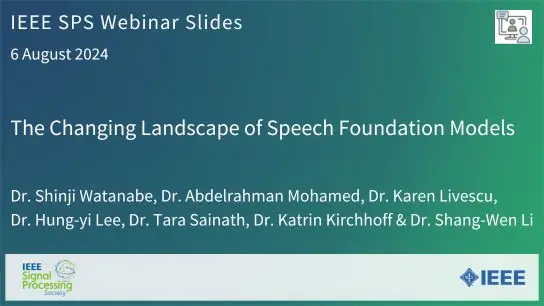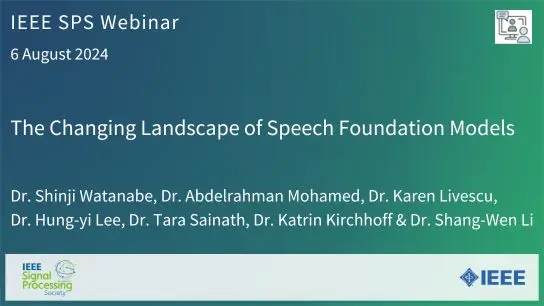JOINT UNSUPERVISED AND SUPERVISED TRAINING FOR MULTILINGUAL ASR
Junwen Bai, Bo Li, Yu Zhang, Ankur Bapna, Nikhil Siddhartha, Khe Chai Sim, Tara Sainath
-
Members: FreeSPS
IEEE Members: $11.00
Non-members: $15.00Length: 00:10:19
08 May 2022
Self-supervised training has shown promising gains in pretraining models and facilitating the downstream finetuning for speech recognition, like multilingual ASR. Most existing methods adopt a 2-stage scheme where the self-supervised loss is optimized in the first pretraining stage, and the standard supervised finetuning resumes in the second stage. In this paper, we propose an end-to-end (E2E) Joint Unsupervised and Supervised Training (JUST) method to combine the supervised RNN-T loss and the self-supervised contrastive and masked language modeling (MLM) losses. We validate its performance on the public dataset \textit{Multilingual LibriSpeech} (MLS), which includes 8 languages and is extremely imbalanced. On MLS, we explore (1) JUST trained from scratch, and (2) JUST finetuned from a pretrained checkpoint. Experiments show that JUST can consistently outperform other existing state-of-the-art methods, and beat the monolingual baseline by a significant margin, demonstrating JUST's capability of handling low-resource languages in multilingual ASR. Our average WER of all languages outperforms average monolingual baseline by 33.3%, and the state-of-the-art 2-stage XLSR by 32%. On low-resource languages like Polish, our WER is less than half of the monolingual baseline and even beats the supervised transfer learning method which uses external supervision.



